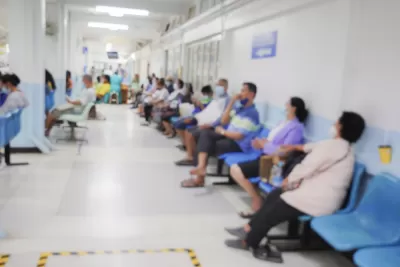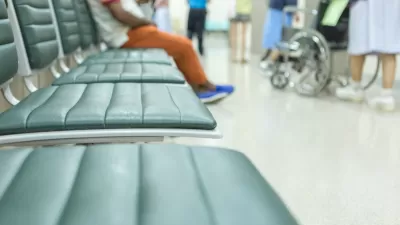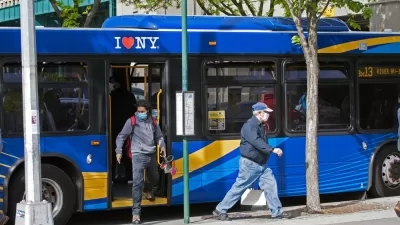One in five Americans with limited access to transit and no vehicle have to forego medical appointments.

A new report from the Urban Institute highlights the link between access to transportation and public health, noting that “More than 20% of people without a personal vehicle and with only poor or fair access to public transportation said they had foregone healthcare needs because of difficulty finding transportation.” Missed appointments can prevent people from getting the care they need and cost the healthcare industry up to $150 billion each year.
Shannon Muchmore summarizes the study in Smart Cities Dive, outlining how the findings can help policymakers and medical providers understand gaps in transit and health systems. “Insurers, particularly in the Medicare Advantage program, have expanded benefit offerings to include a ride to a doctor’s appointment in some cases. Providers have partnered with companies such as Uber and Lyft to provide transportation.”
Muchmore adds that telehealth services are helping to fill the gap, but relaxed Covid-era regulations that permitted more virtual health services are still considered temporary.
FULL STORY: Without vehicle or viable public transit, 1 in 5 miss needed healthcare: report

Study: Maui’s Plan to Convert Vacation Rentals to Long-Term Housing Could Cause Nearly $1 Billion Economic Loss
The plan would reduce visitor accommodation by 25,% resulting in 1,900 jobs lost.

North Texas Transit Leaders Tout Benefits of TOD for Growing Region
At a summit focused on transit-oriented development, policymakers discussed how North Texas’ expanded light rail system can serve as a tool for economic growth.

Why Should We Subsidize Public Transportation?
Many public transit agencies face financial stress due to rising costs, declining fare revenue, and declining subsidies. Transit advocates must provide a strong business case for increasing public transit funding.

How to Make US Trains Faster
Changes to boarding platforms and a switch to electric trains could improve U.S. passenger rail service without the added cost of high-speed rail.

Columbia’s Revitalized ‘Loop’ Is a Hub for Local Entrepreneurs
A focus on small businesses is helping a commercial corridor in Columbia, Missouri thrive.

Invasive Insect Threatens Minnesota’s Ash Forests
The Emerald Ash Borer is a rapidly spreading invasive pest threatening Minnesota’s ash trees, and homeowners are encouraged to plant diverse replacement species, avoid moving ash firewood, and monitor for signs of infestation.
Urban Design for Planners 1: Software Tools
This six-course series explores essential urban design concepts using open source software and equips planners with the tools they need to participate fully in the urban design process.
Planning for Universal Design
Learn the tools for implementing Universal Design in planning regulations.
City of Santa Clarita
Ascent Environmental
Institute for Housing and Urban Development Studies (IHS)
City of Grandview
Harvard GSD Executive Education
Toledo-Lucas County Plan Commissions
Salt Lake City
NYU Wagner Graduate School of Public Service





























